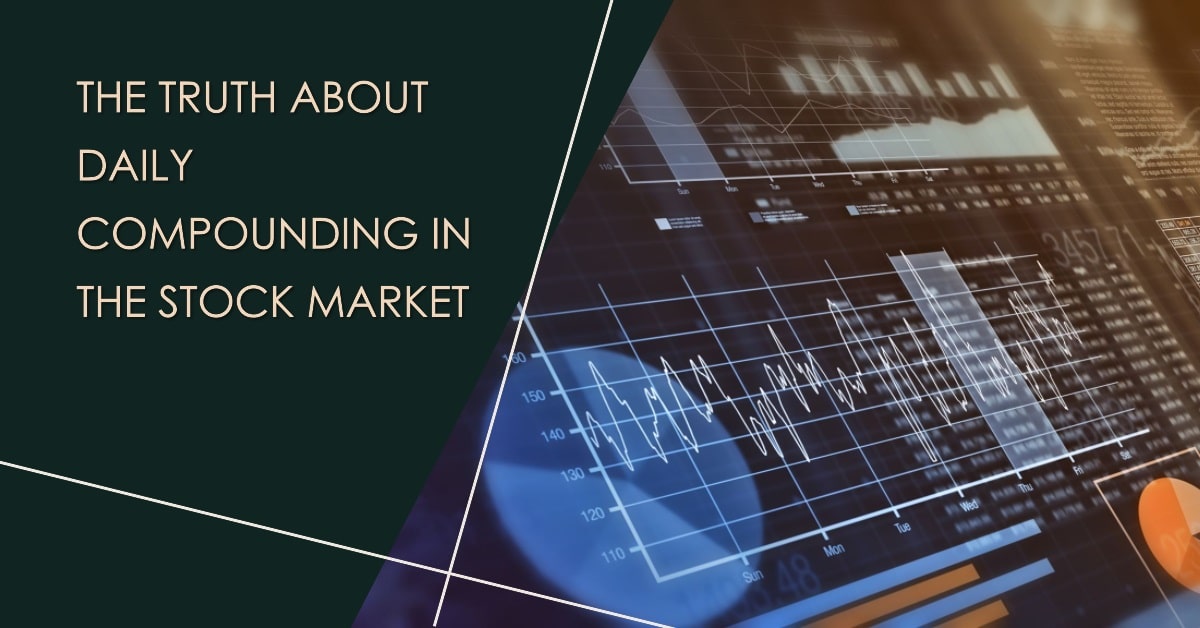Introduction
Investing in the stock market is a popular way to grow your wealth, and one of the key principles that contributes to the growth of an investment is compounding. In this blog post, we will delve into the concept of compounding in relation to stocks and answer the commonly asked question: do stocks compound daily?
Understanding Compounding
What is Compounding?
Compounding is the process through which an initial investment grows over time, not only on the principal amount but also on the accumulated earnings. It plays a critical role in the growth of savings and investments.
How Does It Work?
When you invest in a savings account, a Certificate of Deposit, or a bond, the compounding process is relatively straightforward. Your investment earns interest, and then that interest earns interest on itself, and this process continues, leading to exponential growth over time. With stocks, the concept of compounding is slightly different but operates on the same basic principle.
Compounding and Stocks
Stock Compounding Through Dividends
One way that stocks can compound is through dividends. When a company earns a profit, it can choose to distribute a portion of that profit back to its shareholders in the form of dividends. As an investor, you have two main options:
- Receive the Dividends as Cash: You can take the dividends as cash, which you can spend or invest elsewhere.
- Reinvest the Dividends: Most brokers offer a Dividend Reinvestment Plan (DRIP), where your dividends are automatically used to buy more shares of the stock. This is where compounding comes into play for stocks. As you acquire more shares, you will receive more dividends in the future, which can then be used to buy even more shares, and so on.
Stock Compounding Through Capital Gains
Another way compounding can work with stocks is through capital gains. When the price of a stock increases, you make money on your initial investment. If you sell the stock and reinvest the proceeds into another stock or the same stock at a lower price, you are effectively allowing your gains to compound.
Do Stocks Compound Daily?
In theory, the value of a stock can change every day the stock market is open, and this can lead to daily compounding if we look at it from a certain perspective. However, in practice, daily compounding in the stock market isn’t quite as straightforward as daily compounding with a savings account for several reasons:
- Stock Prices are Volatile: Unlike a savings account with a guaranteed interest rate, stock prices can go up and down frequently, sometimes dramatically.
- Dividends are Not Paid Daily: Companies that pay dividends typically do so on a regular schedule, such as quarterly or annually, not daily.
- Trading Fees and Taxes: Every time you sell a stock, you might incur a trading fee, and you might also trigger a taxable event.
So, while the value of your stock investment can theoretically compound daily due to price fluctuations, the practical aspects of stock investing, such as trading fees and taxes, make daily compounding a bit of a misnomer.
The Power of Long-Term Investing
Patience Pays
Long-term investors can experience the effects of compounding without needing to worry about daily fluctuations. By holding onto a stock (or preferably, a diversified portfolio of stocks) for many years, you give your investment the potential to grow and compound over time.
Regular Contributions: A Different Kind of Compounding
By consistently adding more money to your investment (such as buying more stocks or a stock index fund every month), you’re doing a form of compounding that is sometimes referred to as “dollar-cost averaging”. This strategy can be powerful, especially in volatile markets.
Conclusion
In summary, while stocks don’t compound in the same guaranteed way a savings account or a certificate of deposit might, they do have the potential to generate compound returns over time, especially when dividends are reinvested or capital gains are used to purchase additional shares.
It’s essential to approach stock investments with a long-term perspective and recognize the potential for compounding to work its magic over many years, rather than expecting to see daily compounding in a strict sense.
Invest wisely, understand the risks, and give your investments the time they need to grow, and you might be pleasantly surprised by the compounding effect on your portfolio.
FinBrain Technologies
99 Wall St. #2023
New York, NY 10005


Leave a Reply